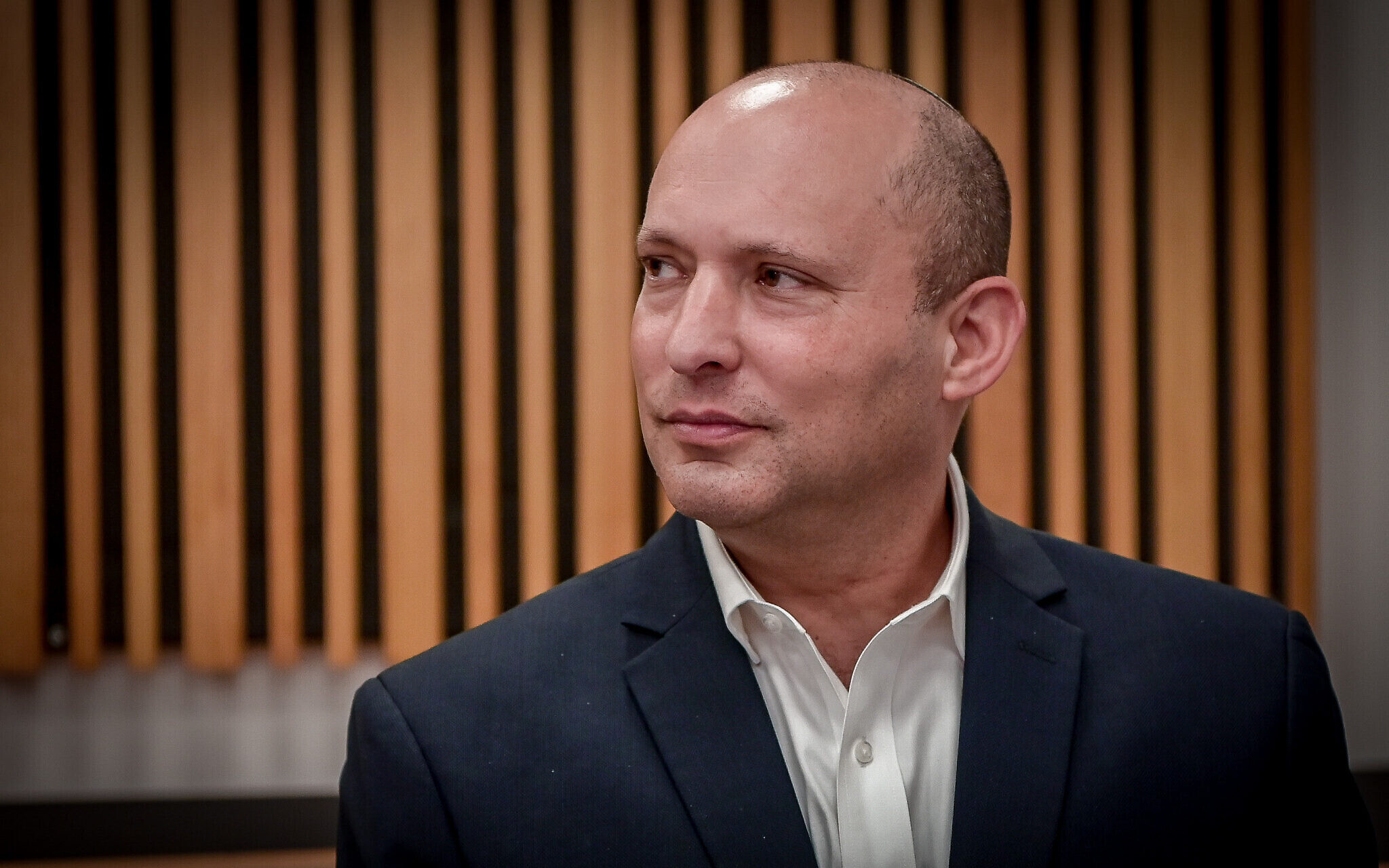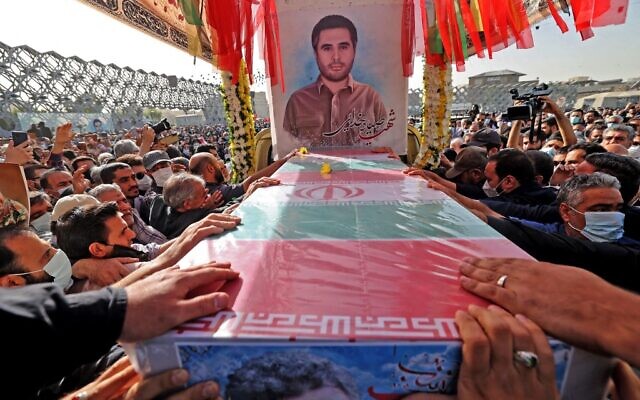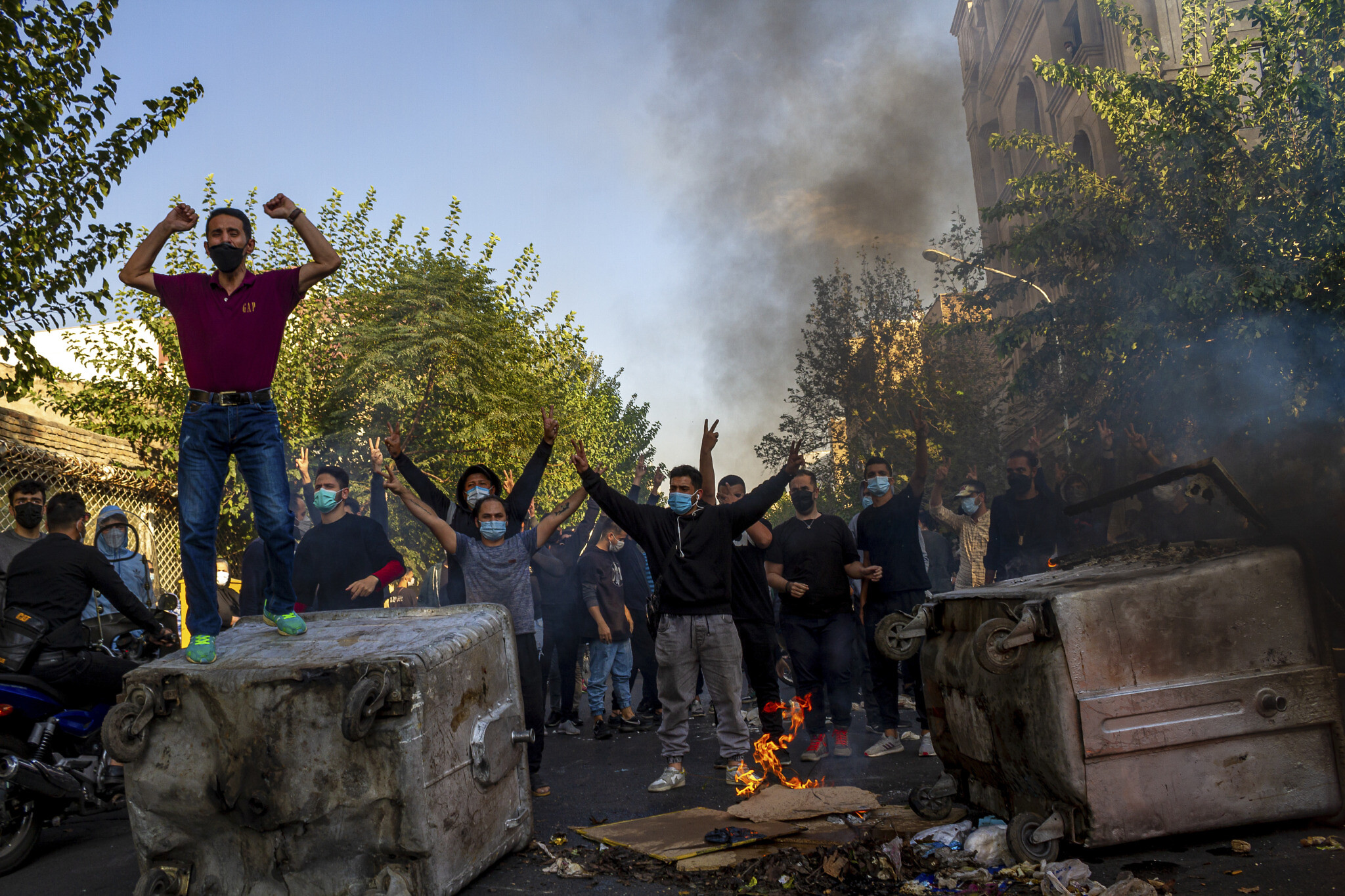



Former prime minister Naftali Bennett revealed that he directed Israel’s security forces to strike Iran on two separate occasions in 2022, in an op-ed published by the Wall Street Journal Thursday.
Bennett gave details of the two strikes in the short article, in which he argued that Israel and the US need to topple the Iranian ayatollahs’ regime, “the source of endless war, terror and suffering throughout the world.”
The article was headlined, “The US and Israel need to take Iran on directly,” with the underline urging: “Make the ayatollahs pay for sowing chaos through their Hamas, Hezbollah and Houthi proxies.”
The first time Israel struck Iran under Bennett’s watch was in February 2022, according to the former premier, when he authorized a strike against a UAV base on Iranian soil in response to two failed drone attacks launched at Israel by Tehran.
In the second instance, in March 2022, Bennett indicated that he authorized security forces to assassinate Hassan Sayyad Khodaei — though he didn’t mention him by name — after an Iranian attempt to kill Israeli tourists in Turkey.
As prime minister, Bennett wrote, “I directed Israel’s security forces to make Tehran pay for its decision to sponsor terror. Enough impunity. After Iran launched two failed UAV attacks on Israel in February 2022, Israel destroyed a UAV base on Iranian soil. In March 2022, Iran’s terror unit attempted to kill Israeli tourists in Turkey and failed. Shortly thereafter, the commander of that very unit was assassinated in the center of Tehran.”
Bennett hinted in the past that Israel was responsible for the killing of Khodaei but had stopped short of acknowledging it.
Israel has been linked to numerous strikes in Iran over the years, primarily against the country’s nuclear program, as well as assassinations of senior figures, but rarely publicly confirms Jerusalem’s role.
After citing Israel’s retaliatory strikes on Iranian targets, Bennett leveled scathing criticism on Teheran.
“It turns out that Iran’s tyrants are softer than one might expect. They gleefully send others to die for them. But when they’re hit at home, suddenly they become timid,” he wrote.
Bennett argued in the article that Israel and the US should focus on bringing down the Iranian regime directly — rather than continuing to fight its proxies across the Middle East — noting that he experienced Iran-backed terror directly when he battled Hezbollah in Lebanon as a soldier.
He opened the article by listing terror groups serving as proxies in Iran’s so-called Axis of Resistance: “Hamas and Islamic Jihad, backed by Iran, massacred 1,200 Israelis on October 7, resulting in full-scale war in Gaza. Hezbollah, also backed by Iran, has launched more than 1,000 rockets at northern Israeli communities since then, risking regional conflagration. Iran-backed Houthis in Yemen are attacking and hijacking ships in the Suez Canal, threatening one of the world’s most vital waterways. Militias in Syria and Iraq, with support from Iran, are attacking US bases and—as always—threatening moderate Arab nations.”
“Notice a pattern?” Bennett asked. “The Iranian regime is at the center of most of the Middle East’s problems and much of global terror.”
The former prime minister compared the current situation to the Cold War standoff between the United States and the Soviet Union in the 1980s: “On one side, there is a corrupt, incompetent and hollow empire—the Islamic Republic of Iran—similar to the Soviet Union in the 1980s. On the other side, there is a thriving, free and strong democracy—Israel (and its allies)—reminiscent of the US in the original Cold War.”
He argued that “just as the demise of the Soviet Union didn’t result from total war,” Israel and the US can use non-military efforts to “weaken Iran.”
Specifically, he recommended empowering domestic opposition to the Islamic Republic, taking steps to ensure internet continuity during riots against the regime, strengthening Iran’s enemies, and increasing sanctions and economic pressures.
The short opinion piece ended by restating Bennett’s primary point – that Israel and the US should be focused on “bringing down Iran’s evil regime.”
Bennett served as prime minister from June 2021 to June 2022.
The op-ed came days after the International Atomic Energy Agency reported that Iran had increased the rate at which it is producing near-weapons-grade uranium in recent weeks, reversing a previous slowdown that started in the middle of this year.
Diplomats believe Western powers have been reluctant to get tough on Tehran in recent months for fear of aggravating Middle East tensions as Iran grows its nuclear program and reduces cooperation with the UN watchdog. Worries of a wider regional conflict have sharpened since Hamas’s devastating October 7 onslaught and Israel’s subsequent offensive aimed at eliminating the terror group in Gaza.
War erupted when thousands of terrorists from the Iran-backed group stormed into southern Israel, brutally massacring at least 1,200 people, mostly civilians in their homes and at a music festival, and seizing some 240 hostages.


